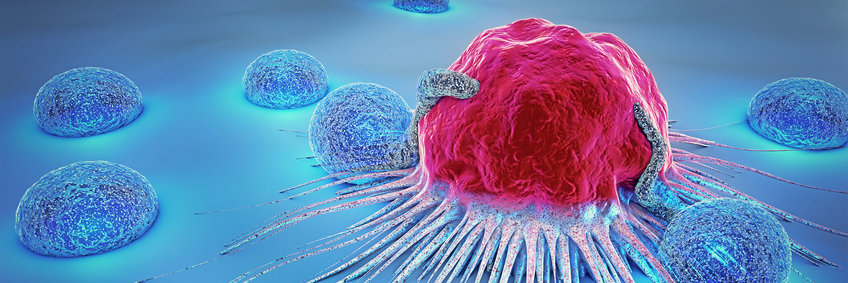
Democratizing cancer screenings
At the Max Planck Institute for Multidisciplinary Natural Sciences a team seeks to develop new technologies that will allow to detect and combat even hard-to-diagnose cancer types in large-scale screenings at an early stage.
To this end, they have developed a rapid method by using metabolic products of the tumor cells as contrast agents. The researchers take advantage of the fact that cancer cells are true energy guzzlers: They grow and divide many times faster and more frequently than healthy body cells. They meet their greatly increased energy requirements by changing their sugar metabolism and converting the molecular "fuel" glucose to pyruvate and finally to lactic acid. Tumor cells therefore contain more lactic acid than healthy cells.
For their MRI procedure, the team at the Max Planck Institute for Multidisciplinary Natural Sciences uses a special form of hydrogen to increase the nuclear spin signal of pyruvate by a thousand times in just a few seconds. This signal amplification allows the conversion of pyruvate molecules into lactic acid to be specifically observed and used as a tumor contrast agent.
Hospitals have been paying millions for MRI equipment including infrastructure. This project aims to show that the new contrast agent method can be used to produce much simpler devices and can also be used for mass screening. The goal is to build a prototype within two years that confirms that tumor imaging is possible in a simple design.